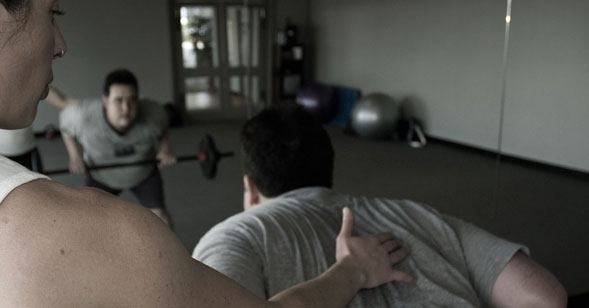
Top 10 Tips For Keeping Up Your Fitness Regime
Unless you are experienced with exercise, or have an experienced trainer, it can be hard to know if you are doing the right exercise, with the right intensity, and regularly enough, to achieve the fitness/strength/fat loss goals you are looking to achieve.
I post daily (well almost daily) tips on Twitter to help people with these particular issues, and to help them keep up their fitness and diet regimes.
Below are some of my top tips from Twitter that I think will help you stay on track with your fitness.
1. Schedule your exercise. If you don’t make it a priority, it probably won’t happen.
Most of us don’t have a lot of spare time, so if you’re new to exercise, you will know too well that it can be easily pushed aside for other things. To ensure you stick with an exercise regime, you have to make it a priority and schedule it in. Get out your diary and write the exercise/activities you plan to do each week. It is important to create a schedule you know is manageable. Be realistic.
2. Add some high quality resistance training into your workouts.
Resistance training has many benefits. It helps to promote fat loss without depleting your muscles, boosts metabolism, improves muscular strength, improves mobility, and enhances performance of everyday tasks. Resistance training should be included (in some form or another) in every exercise/fitness regime.
3. Get into some high intensity interval training.
Interval training will burn fat more effectively then longer bouts of moderate exercise. It will help to increase your metabolism and your fitness. Here’s an example of an interval training program you can try (or modify depending on your own fitness level).
4. Good technique in your workouts is key to making progress.
Bad technique will only impede you in the long run. It is important to focus on the quality of your exercise, not just the quantity. Don’t try to lift the heaviest weights you can pick up. If you’re new to exercise (especially weight training) get an experienced trainer to run you through good technique – you’ll be better off in the long run.
5. Don’t exercise too frequently in the hope of gaining more.
Sometimes your body needs a rest in order to get the best results. You need to listen to your body to work out your optimal training level. If you find exercise is too hard, drop it back for a day or so, it means your body is telling you it needs a rest. You should schedule in rest days and deloading weeks (a week where you cut back on your exercise/training).
It’s also important to mention that you should never push yourself through a workout if you’re sick. You’ll only delay getting better and you won’t be able to give it 100%.
6. Don’t see an occasional lapse as failure.
Sometimes things just don’t go according to plan – life just gets in the way. Remember that there will be set backs. The key is to stay focused on your goals.
7. Make changes to your exercise regime regularly.
Your body adapts to exercise, so change is needed to keep up the benefits. Adaptation explains why people new to exercise (or are new to a type of exercise) are often sore after a workout, but after doing the same workout for weeks, they have little, if any, muscle soreness. Adaptation means your body gets more efficient at what it is doing, and this reinforces the need to vary your exercise regime if you want to see continued improvements.
8. Every 6-8 weeks test your measurements, strength and fitness.
Book in at your local gym or get your trainer to assess your current level of strength and fitness, as well as take your measurements, weight, and skin folds. Regular assessments will help you see where you are making progress, where you need to make improvements, and it will give you something tangible to keep you motivated.
9. Don’t take the ‘all or nothing’ approach. It is better to exercise a little than not at all.
I see many people who are new to exercise, dive head first into a fitness regime and tell themselves they will exercise most, if not all, days of the week. A few weeks later they give up as they can’t keep up with the pace. This is the wrong way to go about it. Start off slowly, and gradually build on your regime once your fitness improves.
Also, as mentioned in point 6, there will be set backs, so if you miss a week or two, it doesn’t mean you have failed. The key is to stay focused on your goals, and get back into it when you can- but follow a realistic program.
10. Don’t just focus your weight loss/fitness goals on how you look – aim to increase your overall health and fitness.
Looking better is generally not a strong enough goal to keep you committed to an exercise regime in the long run. You need to remember all the benefits of exercise – it isn’t all about looks. You will feel better, sleep better, and have more energy.

ED -
Another great article Megan – helps focus the mind on the task at hand! Em
Sumon -
Thanks for sharing Megan – this is one of the best health/fitness sites ever! Keep it up!